
Yasin al-Hashimi was an Iraqi military officer and politician who twice served as Prime Minister of Iraq. Like many of Iraq's early leaders, al-Hashimi served as a military officer during the Ottoman control of the country. He made his political debut under the government of his predecessor, Jafar al-Askari, and replaced him as prime minister shortly after, in August 1924. Al-Hashimi served for ten months before he was replaced, in turn by Abdul Muhsin al-Sa'dun. Over the next ten years he filled a variety of governmental positions finally returning to the office of prime minister in March 1935. On 30 October 1936, Hashimi became the first Iraqi prime minister to be deposed in a coup, which was led by General Bakr Sidqi and a coalition of ethnic minorities. Unlike al-Askari, who was then his minister of defense, al-Hashimi survived the coup and made his way to Beirut, Lebanon, where he died three months later. His older brother and close ally, Taha al-Hashimi, served as Prime Minister of Iraq in 1941.
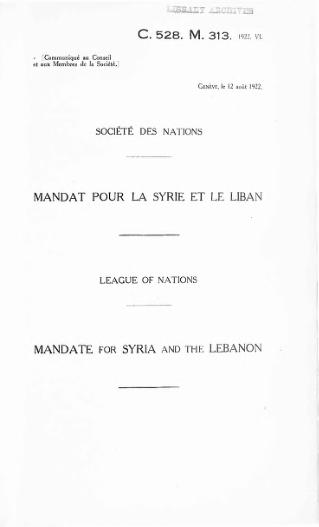
The Mandate for Syria and the Lebanon was a League of Nations mandate founded in the aftermath of the First World War and the partitioning of the Ottoman Empire, concerning Syria and Lebanon. The mandate system was supposed to differ from colonialism, with the governing country intended to act as a trustee until the inhabitants were considered eligible for self-government. At that point, the mandate would terminate and a sovereign state would be born.

Yusuf al-Azma was a Syrian military figure and revolutionary who was the minister of war of the Arab Kingdom of Syria under the governments of prime ministers Rida al-Rikabi and Hashim al-Atassi, and the Arab Army's chief of general staff under King Faisal. He served as minister of war from January 1920 until his death while commanding Syrian forces at the Battle of Maysalun during the Franco-Syrian War.

The Great Syrian Revolt, also known as the Revolt of 1925, was a general uprising across the State of Syria and Greater Lebanon during the period of 1925 to 1927. The leading rebel forces initially comprised fighters of the Jabal Druze State in southern Syria, and were later joined by Sunni, Druze and Shiite and factions all over Syria. The common goal was to end French occupation in the newly mandated regions, which passed from Turkish to French administration following World War I.

Sultan al-Atrash was a Syrian nationalist revolutionary who led the Great Syrian Revolt against the French colonial administration in Syria.

Ibrahim Hananu was a Syrian revolutionary and former Ottoman municipal official who led a revolt against the French colonial presence in northern Syria in the early 1920s. He was a member of a notable landholding family of Kurdish origin in northern Syria.
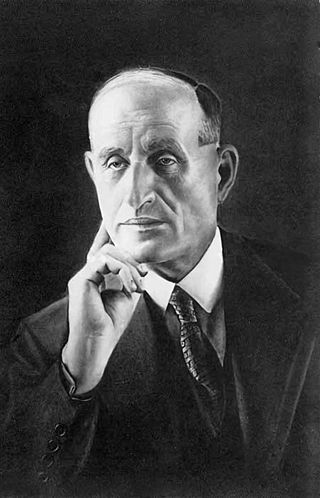
Abd al-Rahman Shahbandar was a prominent Syrian nationalist during the French Mandate of Syria and a leading opponent of compromise with French authority. His devotion to Arab nationalism dated to the days of the Committee of Union and Progress and its "Turkification" policies. He supported the Arab Revolt during World War I and briefly headed the foreign ministry under Emir Faisal.

The State of Aleppo was one of the six states that were established by the French High Commissioner of the Levant, General Henri Gouraud, in the French Mandate of Syria which followed the San Remo conference and the collapse of King Faisal I's short-lived Arab monarchy in Syria.

Jamil Mardam Bey, was a Syrian politician. He was born in Damascus to a prominent aristocratic family of Turkish origins. He is a descendant of the Ottoman general, statesman and Grand Vizier Lala Mustafa Pasha and the penultimate Mamluk ruler Qansuh al Ghuri. He studied at the school of Political Science in Paris and it was there that his political career started.

Abd al-Rahman al-Kayyali was a physician from the city of Aleppo and member of the Syrian independence movement who served as the Minister of Justice and Education for two terms.

Saleh al-Ali or Shaykh Saleh Ahmad al-Ali was a Syrian leader who commanded the Syrian Revolt of 1919, one of the first rebellions against the French mandate of Syria before the Great Syrian Revolt.

The Alawite revolt was a rebellion, led by Shaykh Saleh al-Ali against the French authorities of the Occupied Enemy Territory Administration and later as part of the Franco-Syrian War against the newly established French Mandate of Syria, primarily in the coastal Jabal Ansariyah mountain range. The revolt was one of the first acts of armed resistance against the French forces in Syria, and its leader, Shaykh Saleh, declared his allegiance to the provisional Arab government in Damascus. He coordinated with the leaders of other anti-French revolts in the country, including the revolt of Ibrahim Hananu in the Aleppo countryside and Subhi Barakat's revolt in Antioch.
The capture of Salkhad refers to the clash between the Druze rebel forces of Sultan Pasha al-Atrash and a unit of the French Mandate based in Salkhad on 20 July 1925. It would become the first confrontation of the Great Syrian Revolt. Preceding the battle, on 19 July, al-Atrash's forces shot down a French reconnaissance plane, the first shots of the revolt, and captured its injured pilots. The next day, rebels captured Salkhad and its French garrison without facing significant resistance.

Abu Muhammad Hasan al-Kharrat was one of the principal Syrian rebel commanders of the Great Syrian Revolt against the French Mandate. His main area of operations was in Damascus and its Ghouta countryside. He was killed in the struggle and is considered a hero by Syrians.

Sa'id al-'As was a Syrian nationalist, a former officer in the Ottoman army and a high-ranking commander of rebel forces during the Great Syrian Revolt against French rule in Syria and the 1936 revolt against British rule in Palestine. He was killed in action near Jerusalem during the latter uprising.
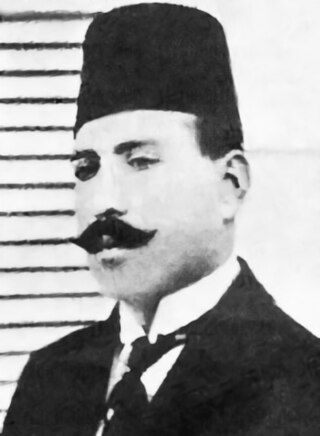
Nasib al-Bakri was a Syrian politician and nationalist leader in the first half of the 20th century. He played a major role in establishing al-Fatat, an underground organization which sought the independence and unity of the Ottoman Empire's Arab territories. As the chief envoy between al-Fatat and the Hejaz-based Hashemites, al-Bakri became a close aide to Emir Faisal when the latter became King of Syria following the success of the 1916 Arab Revolt. Al-Bakri opposed the establishment of the French Mandate of Syria and became one of the chief commanders of the Great Syrian Revolt, leading the rebels' brief capture of Damascus. He escaped a death warrant in Syria in 1927, but returned the following year after being amnestied.

The Hananu Revolt was an insurgency against French military forces in northern Syria, mainly concentrated in the western countryside of Aleppo, in 1920–1921. Support for the revolt was driven by opposition to the establishment of the French Mandate of Syria. Commonly named after its leading commander, Ibrahim Hananu, the revolt mainly consisted of four allied insurgencies in the areas of Jabal Harim, Jabal Qusayr, Jabal Zawiya and Jabal Sahyun. The rebels were led by rural leaders and mostly engaged in guerrilla attacks against French forces or the sabotage of key infrastructure.
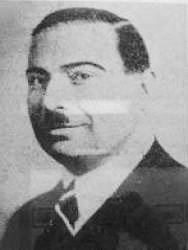
Fathallah Saqqal was a Syrian attorney, writer and government minister. He was well known for successfully arguing for Ibrahim Hananu's innocence in the French Mandatory courts in Syria regarding Hananu's participation in the Hananu Revolt between 1919 and 1921.
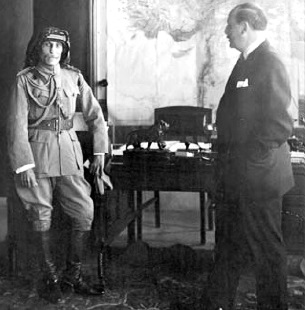
Ramaḍān Pāshā al-Shallāsh was a prominent rebel commander of the 1925 Great Syrian Revolt and, prior to that, a military officer in the Ottoman and Sharifian armies.
Ibrahim Pasha Milli,, was the chief of the Kurdish Milan tribal federation in Upper Mesopotamia, the Aleppo Vilayet, and the Syrian Vilayet of the Ottoman Empire and the commander of several paramilitary Hamidiye regiments.


















